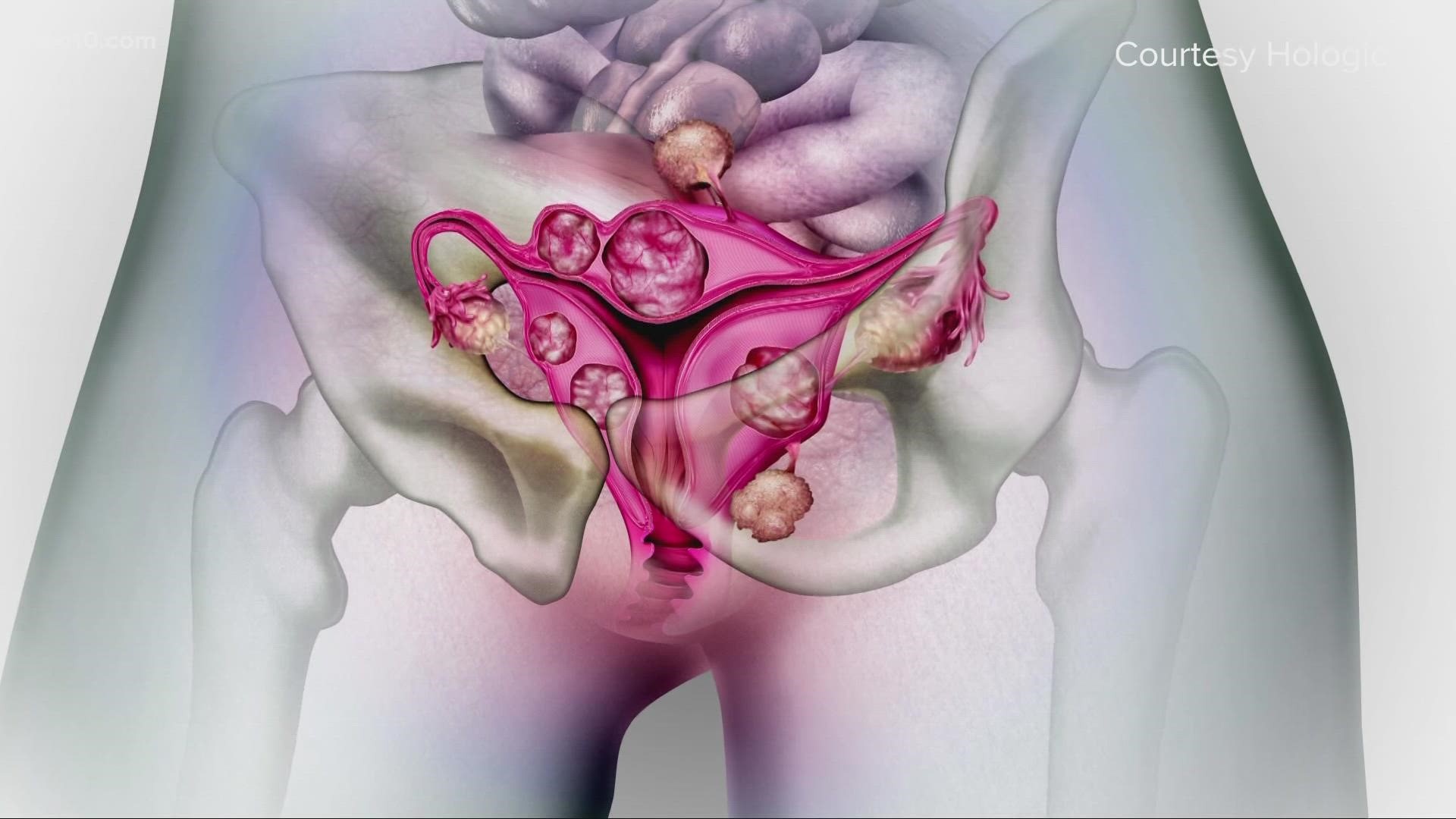SACRAMENTO, Calif. — During the height of the COVID-19 pandemic Celeste Adams, 45, put off her annual pelvic exam, but when she got back on track few months ago, what her doctor found shocked her.
"I could be carrying an 18 week old child because of these fibroids. That's how large they are," Adams said.
Her doctor discovered Uterine Fibroids, non-cancerous tumors that grow in and around the wall of the uterus. If left untreated, it can cause reproductive issues, including infertility and miscarriage. About 26 million women in the U.S. experience the condition, but it's rarely discussed.
Because of her severe case, Adams is now scheduled to undergo a hysterectomy.
"I was floored, like that was not I had expected," Adams said.
According to the International Journal of Women's Health, 77% of women will develop fibroids before menopause.
"Oftentimes, you don't know you have them until you have a problem," Dr. Denise Sweeney said, adding that's due to lack of awareness and research, which also contributes to health inequities.
Studies indicate people of color are more likely to develop Uterine Fibroids. It is estimated that more than 80% of Black women and about 70% of white women develop fibroids by the time they reach menopause. Black individuals with fibroids have also been shown to have more severe symptoms and develop early-onset Uterine Fibroids that develop into larger tumors.
Current research and available data does not provide adequate information on the prevalence and incidence of fibroids in Asian, Hispanic, and Black individuals. While advocating for more research and education, Sweeney is among a growing number of California doctors working to get insurance coverage for Acessa, a new non-invasive procedure to treat the condition. Through laparoscopic surgery, doctors can apply heat to problem tissues.
"If we can treat things earlier, at a more minimally invasive stage, that's a great thing for the patient," Adams said.
Recovery time is less than a week.
"Having a four to five day down time, is really a game changer for women," Sweeney said.
Hysterectomies can put a patient out for up to six weeks. That's the route Adams has to take, but she says she's speaking out in the hope other women will have access to a less invasive option.
"I think it's important for women to realize that they are not suffering alone," Adams said.
ABC10: Watch, Download, Read
Watch more from ABC10



















